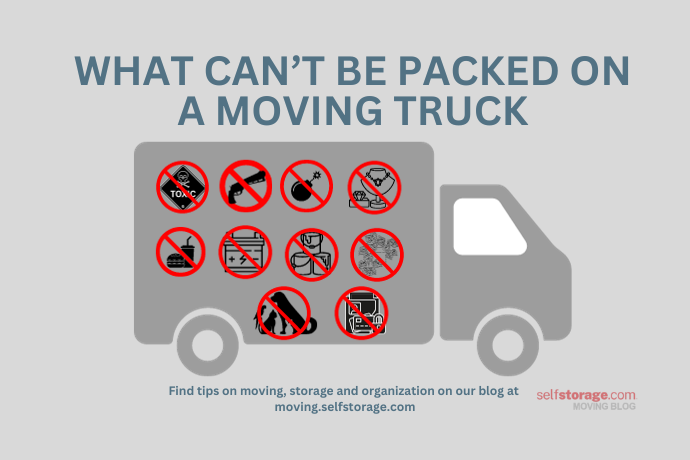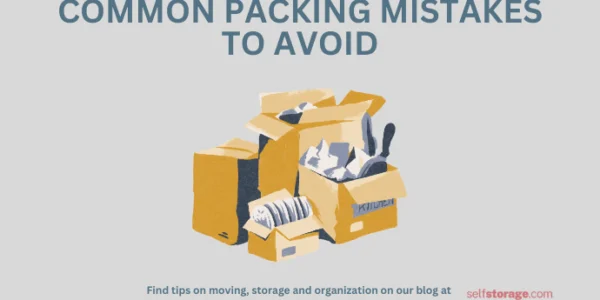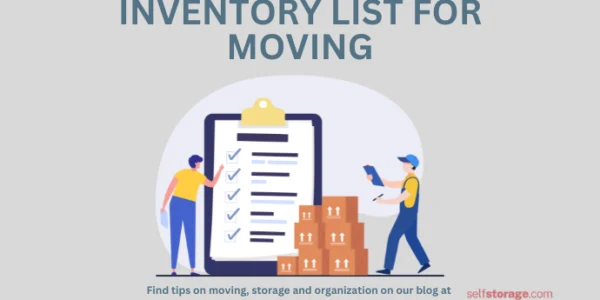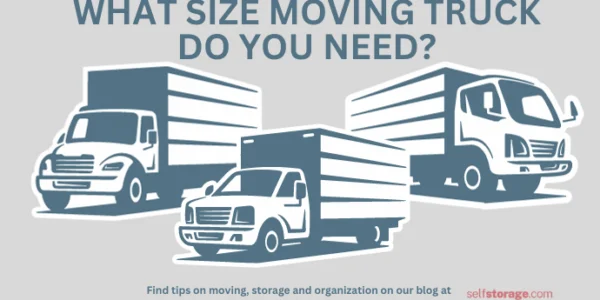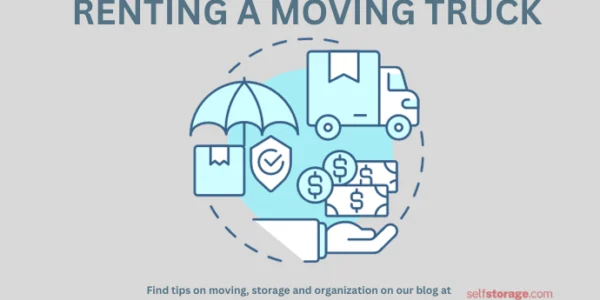What’s covered in this article – click on a link to learn more:
- A Good Rule of Thumb
- The Obvious Hazards
- No Snacks Allowed
- Plants and Animals
- Valuables and Documents
- Prescriptions and Medical Items
- Firearms and Ammunition
- For What Reason?
Moving to a new home is an exciting adventure, but the process of packing up and hauling your life’s possessions from one place to another is a little bit less so. There’s a reason that ‘safety first’ is a common refrain while moving. Protecting your belongings and safeguarding the well-being of everyone involved in the move is tantamount to a safe relocation.
Part of making your move as safe as possible is figuring out what not to pack when moving! We reached out to the pros, Chris Knowles, owner of True Friends Moving Company, Marshall Aikman, co-founder of Amazing Moves Moving and Storage, and Artur Shakhnazarov, owner of Star Van Lines LLC to get some solid safety advice to make your move seamless and secure.
We’ll start by sharing a comprehensive list of items to keep off your moving truck. Please check with your truck rental company or moving company for more detailed specifics!
- Hazardous materials
- Explosives and flammables
- Wax candles, lighters and matches
- Gasoline or kerosine
- Household cleaning products
- Paint
- Fertilizers
- Batteries
- Food and perishables
- Houseplants
- Pets, including those in cages or tanks
- Valuables: expensive items, jewelry, heirlooms and items that are irreplaceable
- Important or sensitive documents: passports, birth certificates, deeds and legal documents
- Prescriptions, medical equipment and mobility devices
- Firearms and ammunition
- Illicit drugs or cannabis (remember, it’s not legal in all states!)
Also read: Things you can’t store in a storage unit
A Good Rule of Thumb
Let’s start by offering up some straightforward advice from Aikman:
“My rule of thumb has always been: if it blows up or makes a mess, keep it off the moving truck.”
So, keeping that in mind, let’s get into the specifics of what to keep off the truck, alternative ways to transport specific items, and some special considerations.
Don’t Pack The Obvious Hazards
Whether you’re DIYing your move or hiring a moving company, transporting hazardous materials is a no go. Hazardous materials are any substances that pose a risk to health, safety, or the environment, including explosives, flammable substances, and chemicals. These materials are typically regulated and controlled due to their potential to cause harm.
In fact, federal regulations, as well as state and local laws, strictly regulate the transportation of hazardous materials. Violating these regulations can result in serious penalties and put your move at risk. It’s essential to check and follow the guidelines provided by the U.S. Department of Transportation (DOT) to ensure compliance.
- Explosives, including fireworks, ammunition, or dynamite, are strictly forbidden. Their unstable nature makes them incredibly dangerous to transport.
- Gasoline, propane tanks, or kerosene are highly flammable and can lead to fires or explosions if not handled properly.
- Household chemicals, like paint, cleaners, or fertilizers can be hazardous when mishandled or accidentally spilled.
“Like most moving companies, we always give our customers a list of items that should either be disposed of or transported separately, but some common household items that people often forget about include batteries, bathroom items, such as nail polish remover and hair spray, boxes of matches or lighters, and most household cleaning solutions, even if they are chemical-free,” Knowles explains.
“A lot of people don’t realize that some very benign garage items, like fertilizer, can be combustible when combined with certain items,” Aikman adds. “And, the same goes for anything you might find under the kitchen sink. If you wouldn’t want your kids or grandkids to come across it, it shouldn’t go on the moving truck.”
While we can all agree we want our move to look nothing like a flame-filled, explosion-riddled Michael Bay film, don’t underestimate the power of a simple spill to ruin a good time.
“We had an incident once where a box of bathroom supplies leaked and ruined several surrounding boxes and their contents. Thankfully, there wasn’t anything explosive or acidic in this particular spill, but the mixture of toilet bowl cleaner and lotion made for some interesting smells and stains,” Knowles said.
When it comes to hazardous materials, the best practice is to dispose of them safely beforehand or seek professional assistance if necessary. Donate common household cleaners to neighbors, and leave behind any items that are specific to the house you are moving from, such as leftover interior/exterior paint.
Don’t Pack Your Snacks
On the moving truck, that is. While a snack bag or a cooler filled with goodies can help sustain you on your journey, food and perishable items should be kept off the moving truck. Putting food on the truck attracts unwanted pests, and creates an unnecessary risk of spills or spoilage.
Your best bet is to make a strategic meal plan and attempt to eat it all before your move. If that’s not possible, donate unused food items to neighbors or a local food bank.
Don’t Pack Your Plants and Animals on a Moving Truck
Most moving companies do not allow plants or pets in their moving trucks. Safe and consistent temperature and light conditions cannot be guaranteed, and the moving company cannot ensure your plants or animals receive the care they need.
“Household plants are an item that many people don’t think about. Depending on where you’re moving to, plants may need to be left behind entirely. But if a houseplant is making the move with you, make plans to transport it yourself,” advises Knowles. Pets and houseplants should make the move in your own vehicle, and if that’s not possible, you’ll have to consider investing in a specialized service.
A Moving Tuck is Not The Place For Valuables and Documents
Valuables are all things that are sentimental, hold a significant monetary value, or items that are irreplaceable, including jewelry, family heirlooms, important documents, and other important keepsakes.
Transporting these items carries some risk of loss, damage or theft, and because of this, it’s best to keep them off the moving truck. This goes for personal documents, too. It’s best to pack all your valuables, and documents, like birth certificates, passports, legal papers and deeds, separately, and transport them in your own vehicle. Remember to make a digital backup and put important documents in a waterproof folder for extra protection against spills. And, for items of considerable monetary value, consider purchasing additional insurance coverage.
Keep Prescriptions and Medical Items Off of a Moving Truck
Those with medical conditions or who require regular medication should pack these items in their essentials bag where they’ll have ready access when they need it. Temperature-sensitive medications may require a special cooler to keep at the appropriate temperature for the trip. It’s also wise to keep extra doses on hand in case of unexpected delays.
The same rule applies to medical supplies, special equipment and mobility devices. Pack them separately from your household items and keep them with you and accessible.
Move Firearms and Ammunition Legally and Safely
Transporting firearms during a move can be complex, as federal and state regulations vary. Some firearms may be transported legally, while others may require special permits. When moving firearms, you must ensure that they’re unloaded and stored securely in a locked container. Keep the ammunition separate from the firearms, and follow all legal requirements for transporting them across state lines.
Consider this story shared by Shakhnazarov as a word of caution. One customer moving from California to Idaho had a large safe and was provided verbal and written communication that the safe must be transported empty. The moving truck was stopped for regular inspection in Utah, and the inspector held up the move to ensure that the safe was empty, as the driver assured him it was. Unfortunately, the customer hadn’t taken the moving company rules and regulations seriously and a firearm was in the safe. This ended up not only delaying his move significantly, but it set off a series of legal proceedings in order to prove that the company and driver were innocent.
A good alternative is to consider using a licensed firearms dealer or a specialized firearm transportation service (ShipMyGun.com is one example) to ensure compliance with all legal regulations. Otherwise, please conduct extensive research and follow the specific laws applicable to your move.
Restricted All For Good Reason
There are good reasons to take moving companies’ restricted items lists seriously. These rules and regulations are in place to ensure the safety of the moving process and to adhere to transport laws. Moving companies have a responsibility to protect your belongings, their employees, and the environment from potential harm or damage.
“Following the rules and regulations also ensures that you don’t incur losses that won’t be covered by the moving company,” Aikman reminds. “I once had a customer who had all-white furniture, all-white carpeting, and a strong resistance to parting with her prohibited cleaning supplies. I asked her if she would be upset if the cleaner leaked out and got on her sofa, and her response was an emphatic yes, but that it would be our fault. I had to explain that cleaning supplies were on the non-transportable list and we wouldn’t be liable for damages in that case.”
So, how should you handle prohibited items? Shakhnazarov shared some sound advice. “First of all, get rid of all unnecessary items,” he said. “Sometimes the price to deliver can be higher than the price to buy a new one when you arrive at your new location, and definitely you’ll pay a higher price if it’s, for instance, a bottle of bleach that then ruins other possessions. If it’s a must-have prohibited item, you’ll need to transport it in your own vehicle, or hire a specialty company. It’s as simple as that.” Safe moving!

